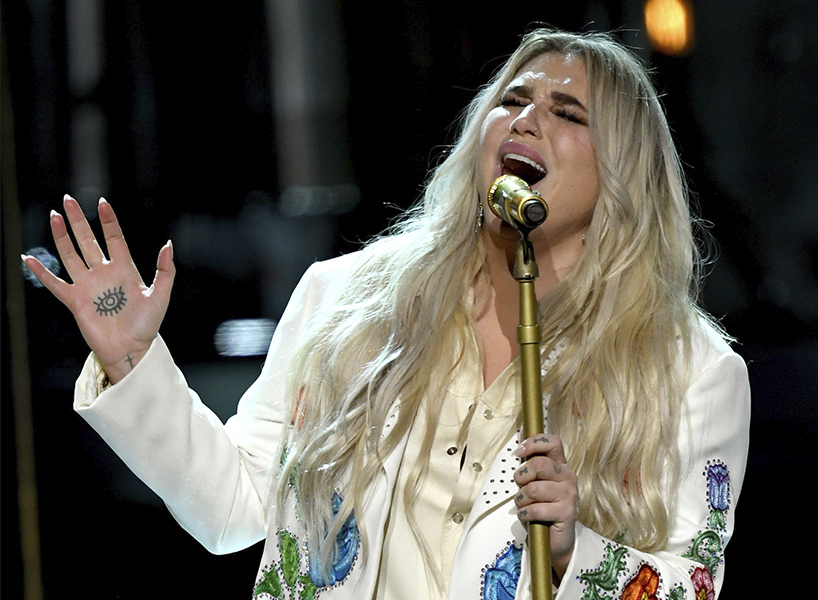By Ali Bush
In high school, I was president of my school’s only music club, the Jam Club. Even though it was only a loosely organized group of ragtag kids who were into alternative music, it was my pride and joy. The climax (and only organized event) of the year was the Jammys, our version of the Grammys, where we could nominate and vote on musicians that we really thought should deserve to win a Grammy that year. We knew every year that our favorite bands would not be represented, be it alternative bands, female musicians, musicians of color, you name it, we knew, even before nominations came out, that they would all lose out to Mumford & Sons. Years have passed since, and this year’s Grammy nominations and winners have only further disappointed me in the Grammy’s inability to support talented female artists or even grasp the idea of good music at all.
It has been a momentous year for women to say the least, and at first, the Grammys ceremony seemed supportive of the Times Up movement and empowerment of women in general. The evening started hopeful as female nominees performed moving, tear-jerking pieces. As a young music lover, I vividly remember watching televised Grammy performances like Beyonce and Tina Turner’s 2008 duet and the impact they had on me. Kesha’s performance was strikingly moving, and was truly an emblem of the #MeToo movement as women like Cindy Lauper, Camilla Cabello, and Andra Day performed beside her, supporting her story of healing after sexual assault. Although the grammys recruited a killer roster of female performers, it is clear that this was a night of hypocrisy, as few women were nominated and even fewer took home awards.
A recent academic study from USC reports that between 2013 and 2018 only 9.3% of Grammy pop nominees have been women. Gender bias is apparent in in this year’s nominees. Major categories including, song of the year, album of the year, and record of the year each featured four male performances and only one woman. Unlike the film industry, which recognizes women and men separately, women compete alongside men, and it is disturbingly blatant when the Grammys favor men.
Performance-wise, the ceremony this year proved to discriminate against women. Lorde, the only woman to be nominated for album of the year, was not allowed to perform at the ceremony unless she participated in a Tom Petty tribute. While every other (male) nominee of this category performed their own work, Lorde declined, the offer and did not perform at all.
The work done by women this year is monumental and particularly impressive. For example, Lady Gaga wrote about dealing with the loss of family; Kesha sings about recovering from sexual assault and forgiving her rapist; SZA, the most nominated woman of the night, sings about the beauty and struggle of being a black woman; Lorde wrote an album about heartbreak and being a teenage girl; Lana del Rey wrote her first political record that is equally insightful and poetic; The list could go on and on, but none of these women won any awards. The only women to be given a major award is Alessia Cara, for Best New Artist.
In an industry where women compete with men within the same categories, women not only held their own this year, they rose above the frivolity of the male nominees. However, they were overshadowed by money making machines like Ed Sheeran and Bruno Mars. Yes, Bruno Mars brought back James Brown soul back to pop music, and I’m sure we can all dance real hard to Ed Sheeran on a drunk Saturday night, but does that even compare to the sincerity and passion that the female nominees so gracefully put into song?
It seems to me that the Grammys are rigged by some 20-something LA producer guy, but the problem lies in the National Recording Academy and their trustees. Their leader, Recording Academy president Neil Portnow responded to a question concerning #GrammysSoMale by stating that women in the music industry “should step up” and “they would be welcome” to the music industry, as if women are fearful and holding back their creative abilities. Cleary, Portnow is lacking a nuanced understanding of ways in which women are intimidated and discouraged in the music industry, or any male dominated industry for that matter.
Thankfully, a letter authored by six of the most powerful women executives of record labels like Universal Music Group, Atlantic Records, and Sony Music claimed that the Recording Academy’s board of trustees are “woefully out of touch with today’s music, the music business, and society in general.” Published on behalf of these executives’ respective companies, this had the backing of billions of dollars’ worth of power, and ends on a hopefully note urging the creation of a task force within the Academy to obliterate obstacles for female musicians.
The Grammys lost 6 million viewers this year, and it’s obvious to me that the Grammys are totally out of touch with what real people listen to and want to see at a ceremony. Until they meet resistance like that of the #OscarsSoWhite campaign, only a select group the billboard’s top artists will be rewarded for their work, and real talent produced from real struggle and emotions will remain taken for granted.
For a year that produced some of the most moving music by women ever to be accepted in the mainstream, the Grammys applauded none of them. While celebrities donned Times Up pins and white roses on the red carpet to support female empowerment, the institution of the Grammys might as well have condemned the entire movement. Women truly turned out some amazing music, but were overshadowed by male, money making popstars. When the Grammys snub these women’s albums, they not only reject their work as musicians, but they ignore their stories, silence their voices, and invalidate their experiences.



